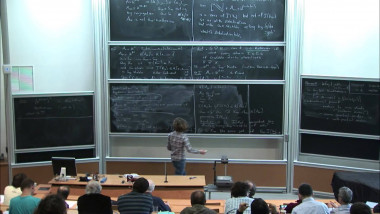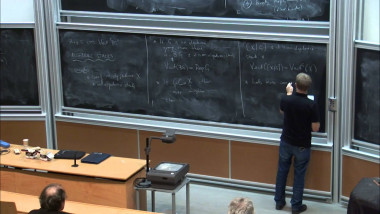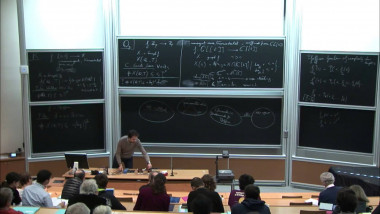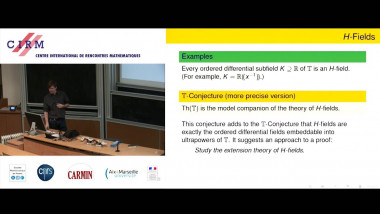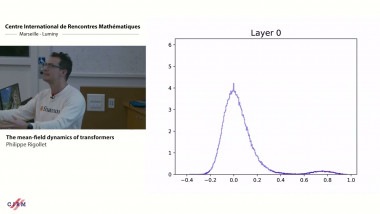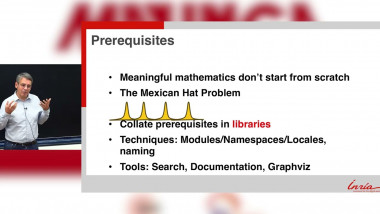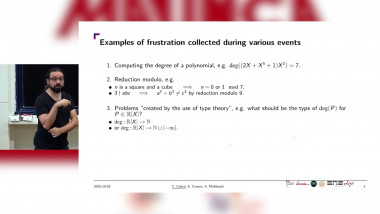Pfaffian functions: real and non-archimedean, and an application to counting rational points
By Raf Cluckers
We will present some of the original definitions, results, and proof techniques about Pfaffian functions on the reals by Khovanskii. A simple example of a Pfaffian function is an analytic function $f$ in one variable $x$ satisfying a differential equation $f^\prime = P(x,f)$ where $P$ is a polynomial in two variables. Khovanskii gives a notion of complexity of Pfaffian functions which in the example is just the degree of $P$. Using this complexity, he proves analogues of Bézout's theorem for Pfaffian curves (say, zero loci of Pfaffian functions in two variables), with explicit upper bounds in terms of the ocurring complexities. We explain a recent application by J. Pila and others to a low-dimensional case of Wilkie's conjecture on rational points of bounded height on restricted Pfaffian curves. The result says that the number of rational points of height bounded by $T$, on a transcendental restricted Pfaffian curve, grows at most as a power of log$(T)$ as $T$ grows. This improves the typical upper bound $T^\epsilon$ in Pila-Wilkie's results in general o-minimal structures, the improvement being due to extra geometric Bézout-like control. In the non-archimedean setting, I will explain analogues of some of these results and techniques, most of which are (emerging) work in progress with L. Lipshitz, F. Martin and A. Smeets. Some ideas in this case come from work by Denef and Lipshitz on variants of Artin approximation in the context of power series solution.












